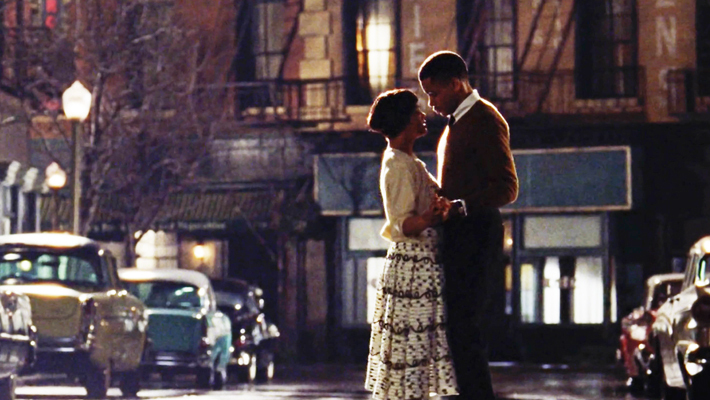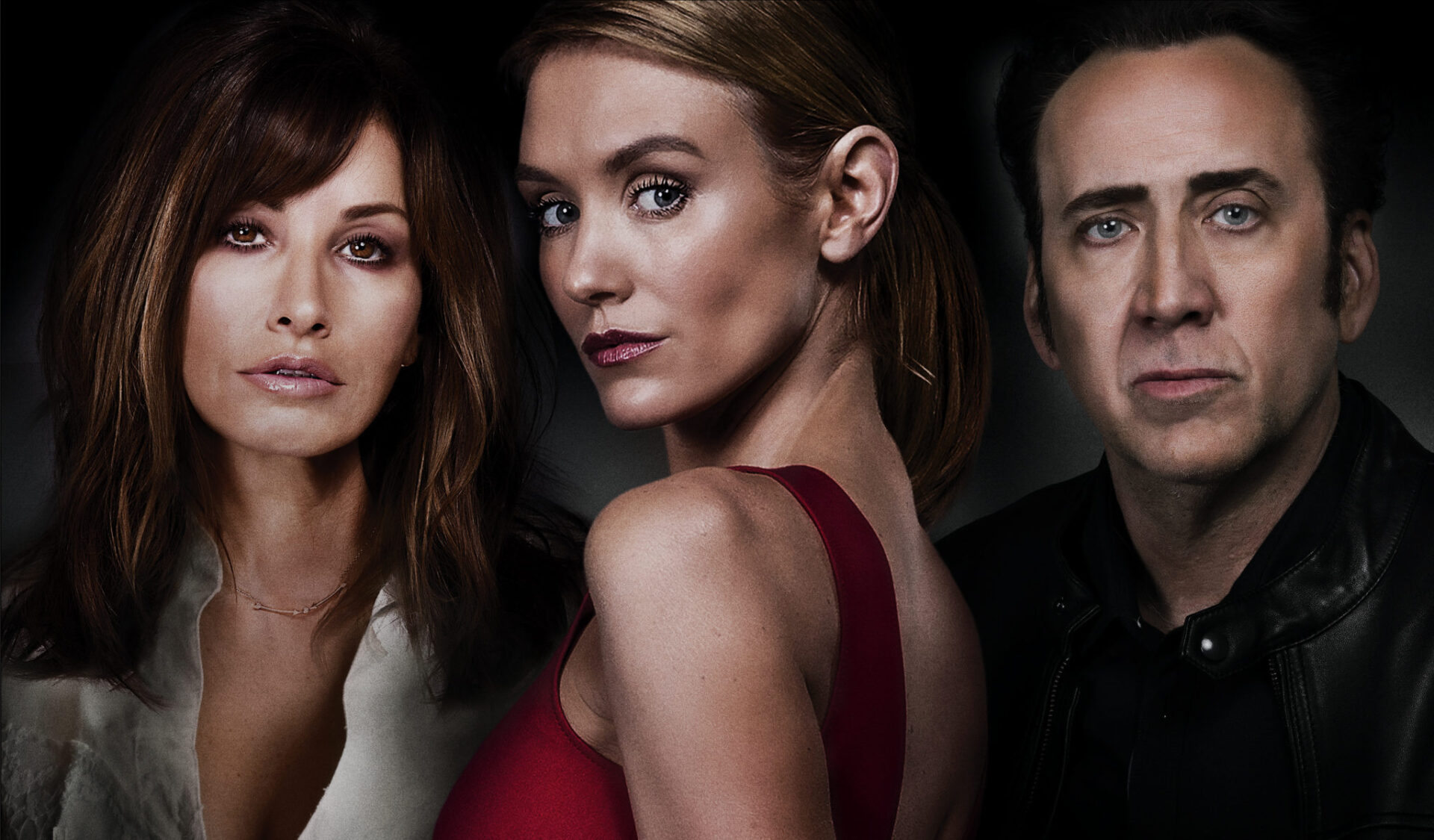It’s 1962 on a beautiful night in New York. Sylvie (Tessa Thompson) is waiting outside The Town Hall where Nancy Wilson is about to perform in a beautiful 1960s style dress courtesy of the detail of costume designer Phoenix Mellow. In her anxiousness looking for her guest, her eyes lock with jazz musician Robert Halloway (Nnamdi Asomugha). In how she says his name, the heaviness of memories weighs upon it. From that point, Sylvie’s Love takes the audience on an excursion of a romance that morphs into the romance movies of that period. A connection that not only stands the test of time, but against the many objections that seek to derail it.
Sometimes, the best love stories start with a glance or a hint of curiosity. One day, Robert walks to a local record store where Sylvie is occupied in her love for television. As he asks about the help wanted sign, their first interaction pits the quick and proper wit of Sylvie, infused in her by her mother Lacy (Eunice Johnson), and Robert’s inquisitive infatuation. Thompson and Asomugha’s performances will pull you in and root for their characters to make it through. They have non-verbal cues that are just as powerful as the dialogue they speak to each other. As they get lost in each other’s eyes during scenes, you become pulled in their orbit. The supporting cast with actors like Regé-Jean Page, Eva Longoria, Tone Bell, Wendi McLendon-Covey all have their own moments within the story.
Director Eugene Ashe emphasizes moments of allure; such as when Sylvie gets lost in watching Robert playing the saxophone for the first time. The spotlight on the stage seems to pull him in as Sylvie becomes more focused. There’s a slow dance scene in the street to Jackie Wilson’s ‘To Be Loved’ that’s straight out of a storybook. Sylvie and Robert begin a summer romance that births so much more, but not without its challenges. Sylvie is engaged to a doctor named Lacy (Alano Miller) who is overseas during them confiding each other. Her mother doesn’t approve of them being together. The band that Robert plays in gets a chance to play in Paris while Sylvie unexpectedly becomes pregnant with his child. At that point, it seems as the story ends like 1942’s Casablanca. “We’ll always have Paris.” However, a love deferred is not a love denied.
The second half of the film takes on a different tone. While the orbit of Sylvie and Robert is still at the forefront, there’s an exploration of them as individuals. While they are away from each other, Sylvie seeks to find her own voice, and she fights to cement that through societal and racial difficulties. One of the most underrated relationships in the film is Sylvie’s friendship with Mona (Aja Naomi King). She’s free-spirited, outgoing, and soon to be involved in the civil rights movement. Anytime Sylvie falls back into old habits, Mona is a phone call or visit away to say the words to push her out of her comfort zone.
Sylvie’s Love doesn’t ignore the difficulties of the time that it’s in. Rather, it uses them as a device to make the principal characters’ arcs that much more full. Sylvie desires to work as a production assistant, while her husband would rather her stay home and be a homemaker. There’s a conversation they have with a white couple from Lacy’s job with some micro-aggressive prejudice peppered in. Robert is trying to find his way to be a jazz musician in the emerging age of Motown. As he tries to assert himself in taking charge of his career, the gaze of music shifts, and he has a hard time adjusting.
In how Robert and Sylvie interact with each other, even through disagreements, there’s a gentle nature where they meet in the middle. They both make hard sacrifices for each other in the best interest of their personal development. Which may not mean them ending up together. Sylvie does it towards the beginning and Robert returns the favor. It might be the most fascinating thing about their union and why it survives for so long. The embodiment of the old saying, “If you love something, let it go. If it comes back, it’s yours forever.” Some scenes would consider falling in a contemporary star-crossed love story as with a character arriving somewhere seconds too late or serendipitous circumstances that lead them back together. While the back half may run a half step longer than it has to in spurts, it’s a welcomed change for a Black romance film to have that chance. Declan Quinn‘s cinematography accurately captures the classic feel of 1950-60s New York. The orchestral compositions of Fabrice Lecomte joined with songs like ‘Fly Me To The Moon’ and ‘See You Later, Alligator’ are just as important in setting up the ambiance of scenes.
What better way to speak to the testament and staying power of a Black love story than to tell it within a time that was so turbulent for Black America. Sylvie’s Love doesn’t ignore the troubles, rather it stresses the beauty and perseverance. It is only now that we can receive these stories like 1953’s Roman Holiday or 1957’s An Affair To Remember with two Black leads. Dorothy Dandridge was one of the rare and only exceptions of African American success in old-time Hollywood. It’s a shame because of racism and segregation that we missed out on so many more stories. Black lives and joy aren’t exclusively centered and rooted in the struggles that society places upon them. They deserve grace and lightheartedness, no matter where they take place.
Photo Credit: Amazon Studios













